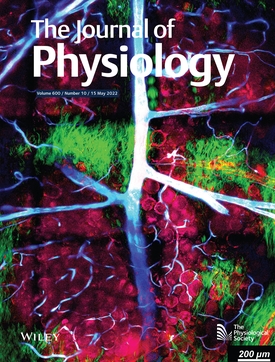从人类到超人:微生物组对生理的影响。
IF 4.7
2区 医学
Q1 NEUROSCIENCES
引用次数: 0
摘要
长期以来,人们一直认为居住在人体肠道中的复杂微生物群落调节胃肠道生理并参与消化系统疾病,但其肠外作用和影响越来越被认识到。本文讨论了肠道微生物群与运动表现、代谢、寿命以及肠-脑轴影响认知功能和心理健康的能力之间的双向相互作用。本文章由计算机程序翻译,如有差异,请以英文原文为准。

From human to superhuman: the impact of the microbiome on physiology
The complex microbial community residing in the human gut has long been understood to regulate gastrointestinal physiology and to participate in digestive diseases, but its extraintestinal actions and influences are increasingly recognized. This article discusses bidirectional interactions between the gut microbiome and athletic performance, metabolism, longevity and the ability of the gut–brain axis to influence cognitive function and mental health.
求助全文
通过发布文献求助,成功后即可免费获取论文全文。
去求助
来源期刊

Journal of Physiology-London
医学-神经科学
CiteScore
9.70
自引率
7.30%
发文量
817
审稿时长
2 months
期刊介绍:
The Journal of Physiology publishes full-length original Research Papers and Techniques for Physiology, which are short papers aimed at disseminating new techniques for physiological research. Articles solicited by the Editorial Board include Perspectives, Symposium Reports and Topical Reviews, which highlight areas of special physiological interest. CrossTalk articles are short editorial-style invited articles framing a debate between experts in the field on controversial topics. Letters to the Editor and Journal Club articles are also published. All categories of papers are subjected to peer reivew.
The Journal of Physiology welcomes submitted research papers in all areas of physiology. Authors should present original work that illustrates new physiological principles or mechanisms. Papers on work at the molecular level, at the level of the cell membrane, single cells, tissues or organs and on systems physiology are all acceptable. Theoretical papers and papers that use computational models to further our understanding of physiological processes will be considered if based on experimentally derived data and if the hypothesis advanced is directly amenable to experimental testing. While emphasis is on human and mammalian physiology, work on lower vertebrate or invertebrate preparations may be suitable if it furthers the understanding of the functioning of other organisms including mammals.
 求助内容:
求助内容: 应助结果提醒方式:
应助结果提醒方式:


